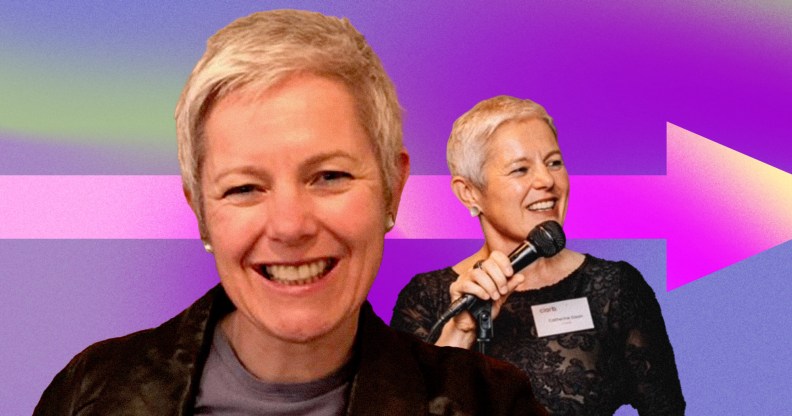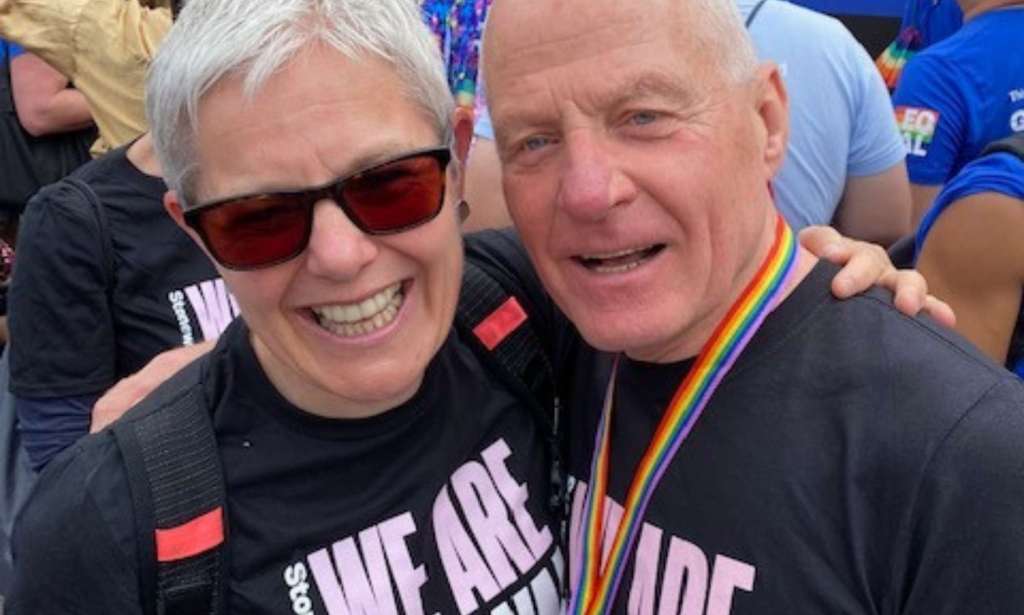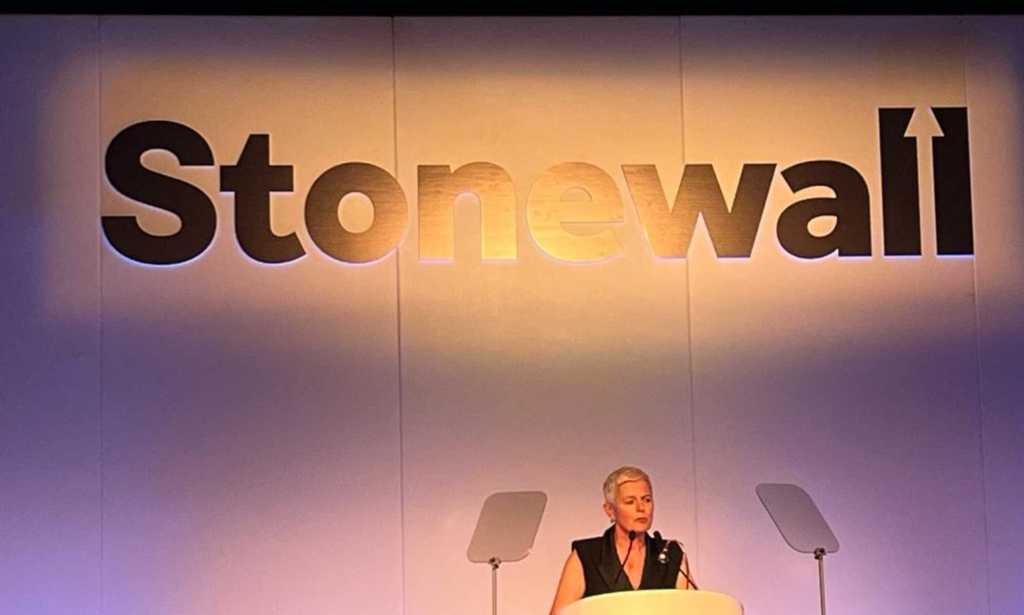Stonewall to remain ‘at the forefront of change’, promises new boss Cat Dixon

Cat Dixon is the new chair of Stonewall. (Credit: Supplied)
Stonewall’s new chairwoman Cat Dixon has spoken of her determination to keep the charity at the forefront of change and a part of the national conversation about LGBTQ+ rights.
Dixon, who was unanimously elected by the board of trustees in October, told PinkNews she is incredibly proud to take on the role but equally feels the “massive responsibility” that comes with it.
She was Stonewall’s longest-serving trustee and formerly vice-chairwoman of the organisation, with her appointment coming after Nancy Kelley stepped down as chief executive in July.
Prior to this, Dixon was the chief executive of The Law Society, NHS Resolution and a higher-education college, where she was also the principal. She has also been a senior executive at private health company BUPA, and general counsel for the children’s charity, the NSPCC. In addition, she served as an army officer.
Outside work, Dixon has a unique claim to fame, holding the world record for the fastest circumnavigation of the world on a tandem, which she set in 2020.

Born to a working-class family in Hull, Dixon feels she “grew up” alongside Stonewall, which was in its infancy in the late eighties, and wants to keep it as the “strong, influencing, campaigning organisation we all know and love”.
She went on to say: “My life would be very different had it not been for the work that Stonewall has done. I remember coming out when I was in my teens and the prospect of ever getting married or having your relationship recognised in the same way didn’t exist.
“Your relationship wasn’t considered as valid as a heterosexual relationship.
“So, that has been a massive change but there’s still more to do. It’s also important that we don’t backslide [because] some of the things we’ve seen in the past few years have been really concerning.
“It is important that we keep campaigning but also make sure that we’re speaking to, and informing, the vast majority of people, who we now know are supportive of us.”
Dixon’s youth fell under the shadow of the HIV/Aids crisis and Section 28, while her army career coincided with Britain’s archaic gay military ban, which was only lifted less than 24 years ago.
While she was lucky to avoid a criminal offence for her sexuality – unlike so many others – this direct experience of “hate and discrimination” made her want to get involved with LGBTQ+ activism and support Stonewall.
“It was a really tough time to be a lesbian,” she said. But while recalling the darkness she faced, she recalled an amusing tale from when she was just starting to come out and went to a lesbian event for the first time.
Feeling apprehensive, scared and as if she was the only lesbian in the world, as so many do, the first question she was asked at the event was whether she was butch or femme.
“I thought: ‘Oh s**t, I actually don’t know. What’s the answer?'” she laughed.
However, this moment was pivotal for Dixon as a young person just beginning to explore her identity openly, because it made her realise she simply wanted to be herself.
“It made me recognise the importance of being able to live as your authentic self. At that time, you couldn’t be out, you had to hide it. I spent a lot of time in the army hiding who I was and it was very destructive.”

Thinking back to that young lesbian, growing up in an era when an accepting and tolerant world for LGBTQ+ people was so far away, she would have encouraged her younger self to “just be yourself [and] live the life that you want to live”.
That being said, that same girl from Hull would never have believed she would one day take the top seat at Stonewall, leading the charge for people just like her across the UK and beyond.
“I don’t think for one minute, I believed it possible,” she admitted.
Dixon’s appointment comes at a trying time for the community, both in the UK and around the world. The mainstream media is rife with transphobia, and politicians are using transgender people’s lives as a political football to score cheap points.
A conversion therapy ban remains elusive and LGBTQ+-inclusive education is being called into question.
Stonewall’s priorities going forward include focusing on the “disappointing” lack of a ban on conversion therapy, and demedicalising the Gender Recognition Act.
The charity will focus on the “shocking” rise in homophobic and transphobic hate crime figures, which Dixon believes are just the tip of the iceberg, given the fact many victims don’t report incidents.
She would also like to see hate crime become an aggravated offence.
“It’s really important the government take firm action and currently that is not being addressed,” she pointed out.
Dixon touched on the Conservative government’s controversial trans guidance, and Stonewall’s determination to ensure that children are able to “explore their sexuality and gender in a healthy way”, while their education is safe and inclusive.
“If you think about Stonewall’s roots going back to Section 28, it is really important that guidance is in place and young people are supported,” she added.
Healthcare is another area where major work is needed, including ensuring social care protects older members of the LGBTQ+ community from harm, IVF is accessible, and the “shocking” waiting lists for trans people to access gender-affirming care are dealt with.

While there is still much to do, it’s important to “keep in mind that there are allies out there… we mustn’t lose sight of that in this toxic rhetoric that is happening”, Dixon emphasised.
“There are people, many politicians of all parties, who are allies and we are determined to continue having conversations with them and seek to influence change.”
How did this story make you feel?

